Progeny Testing
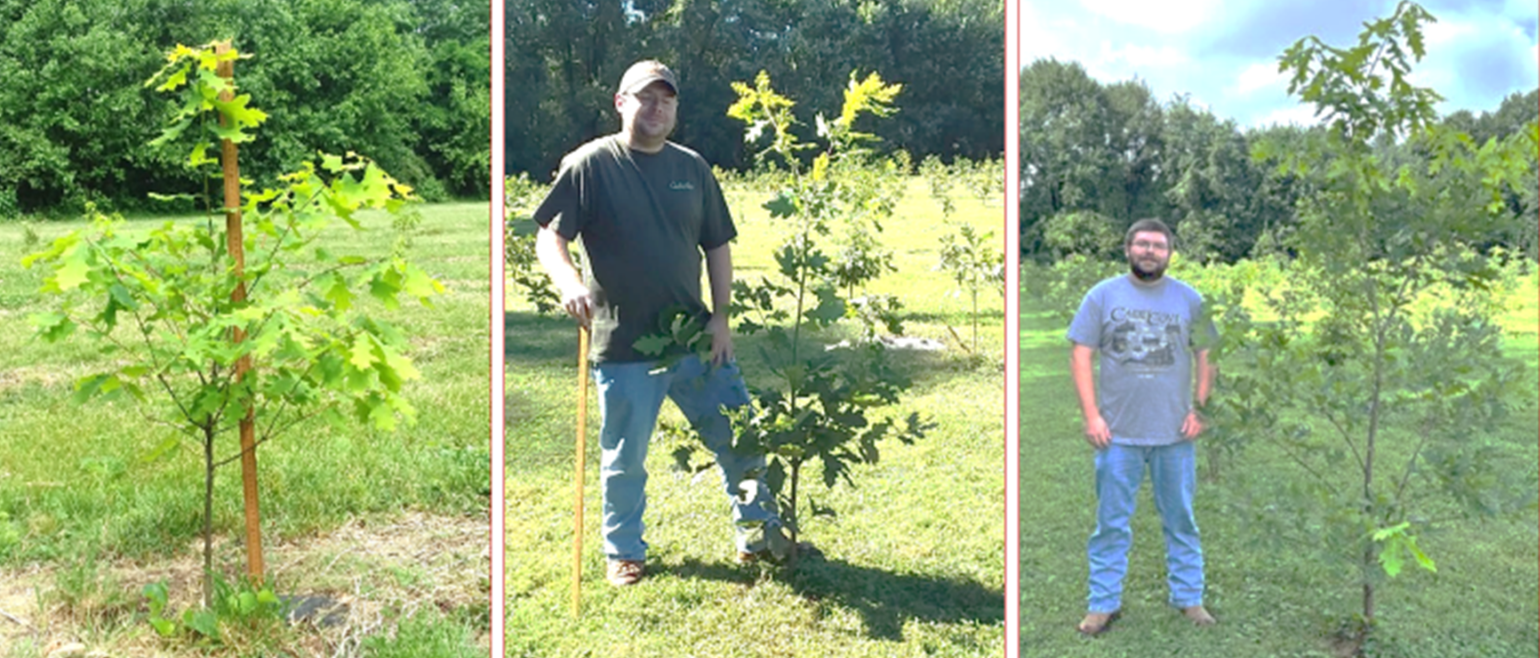
Superior seedlings continue to grow fast.
Not all mother trees, even good looking ones, produce good offspring. We determine this by planting seedling offspring of mother trees that the acorns were collected from into progeny tests. The environment within each test is the same so the differences we see among seedlings are due to genetics. White oak offspring are grown for 15 years in these tests and traits such as fast growth, form, adaptation to the climate, etc. are evaluated during this time.
40,000
Seedlings Planted into Progeny Tests
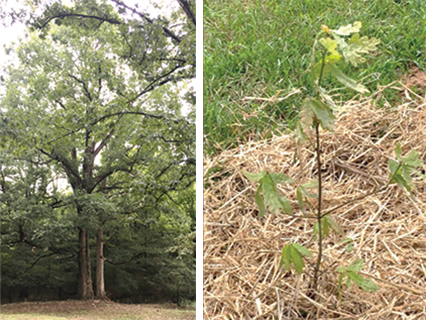
The mother tree on the left produced inferior seedlings that were only 6 inches tall.
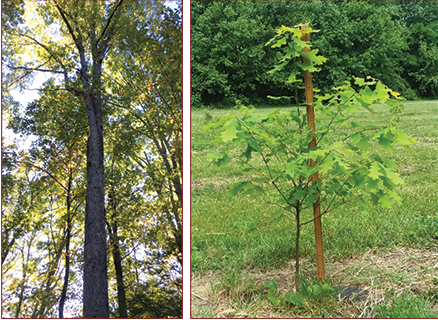
The mother tree on the right produced superior seedlings that were 3 feet tall. Superior seedlings continue to grow fast.
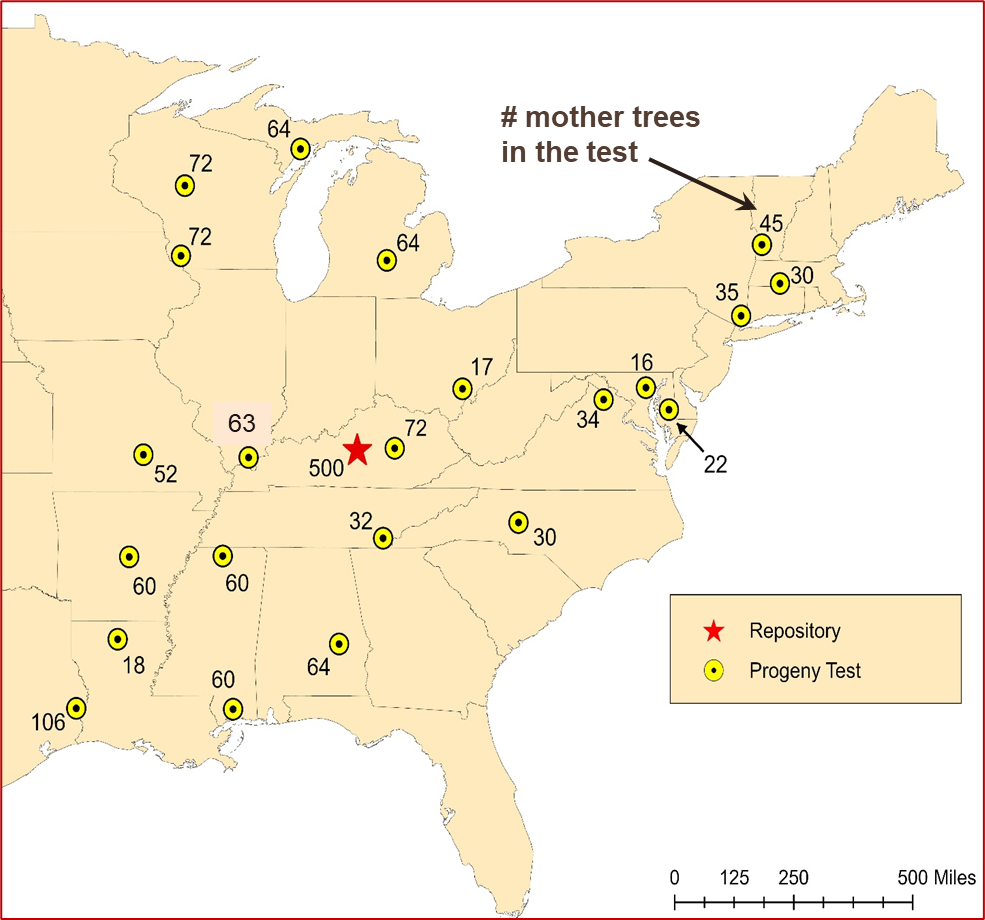 White Oak Progeny Test Locations
White Oak Progeny Test Locations
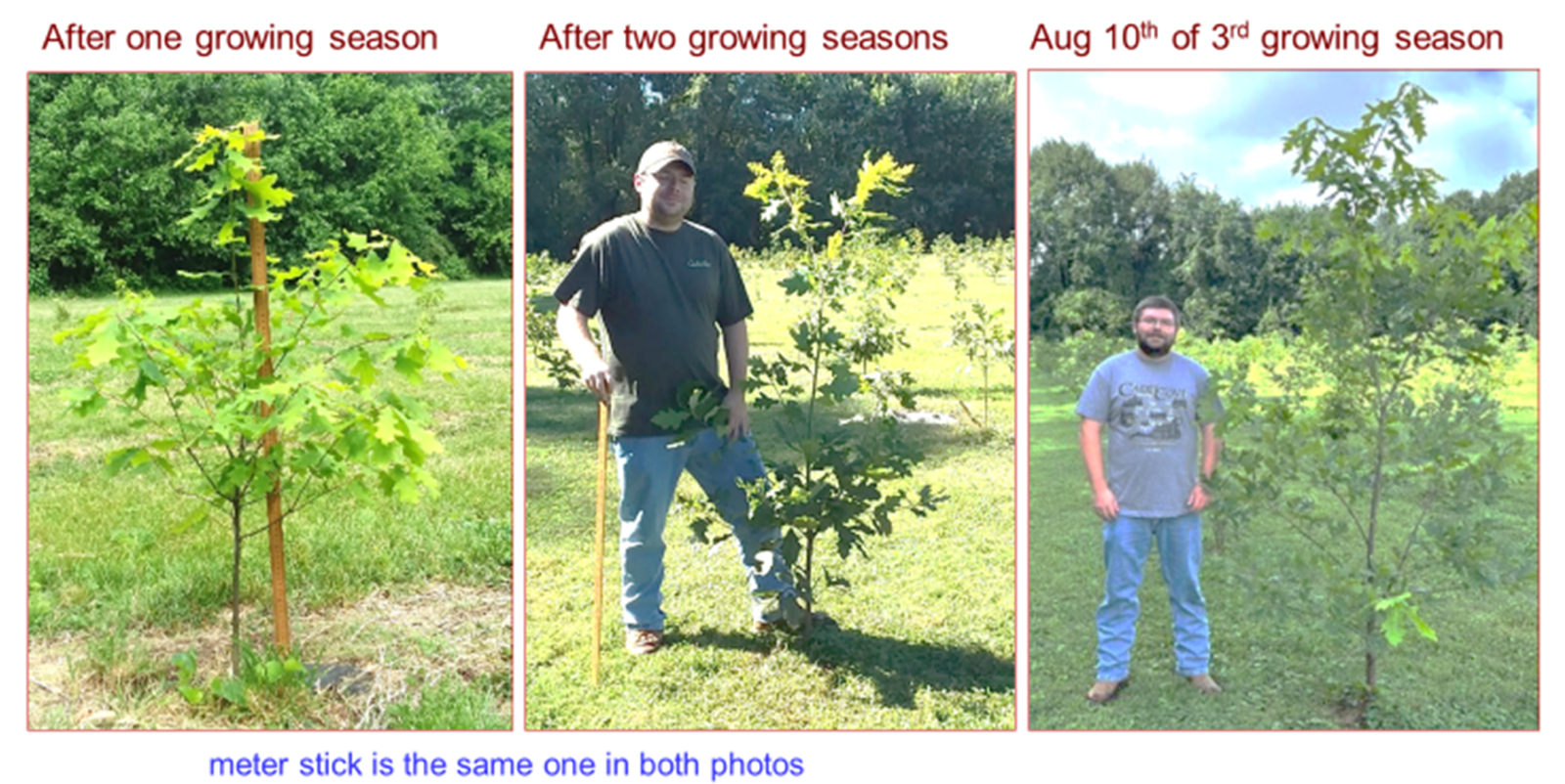
Over 40,000 white oak seedlings have been planted into regional progeny tests across the geographic range of white oak using seedlings from mother trees considered locally adapted to the area where the progeny test is located. These regional progeny tests also include offspring from mother trees located farther south to allow us to gain knowledge about assisted migration that might be needed to help trees adapt to future climate conditions.
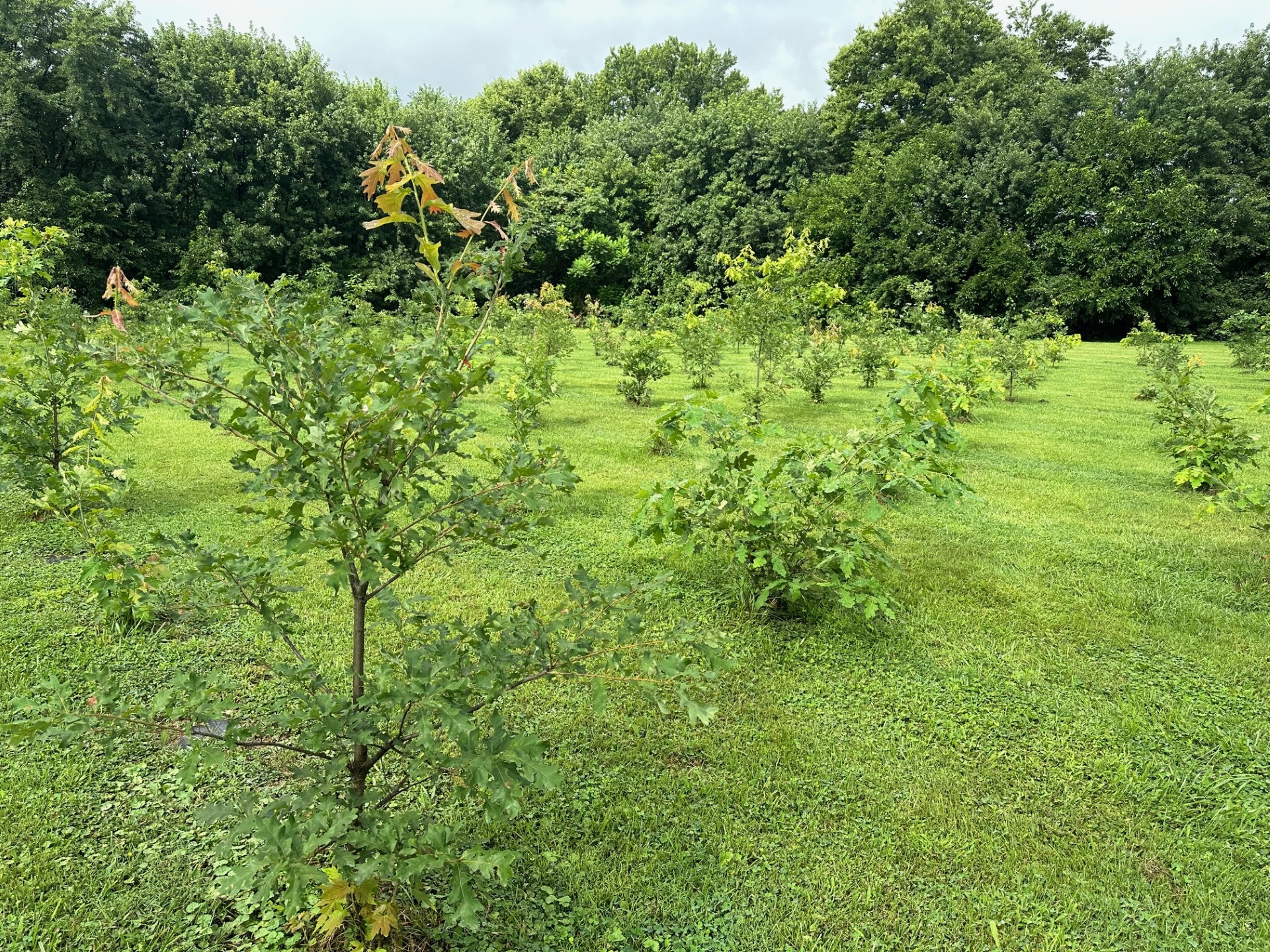
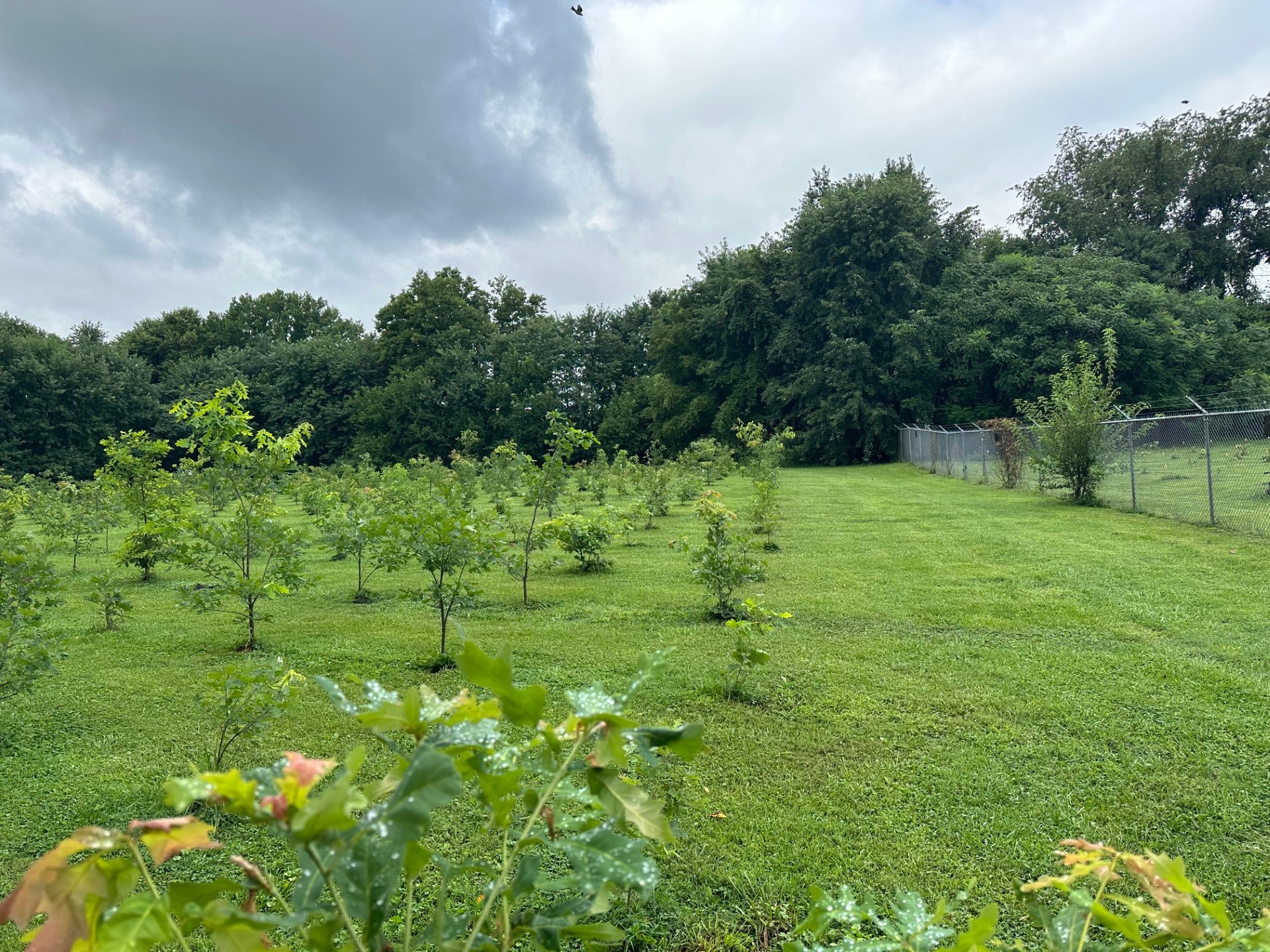
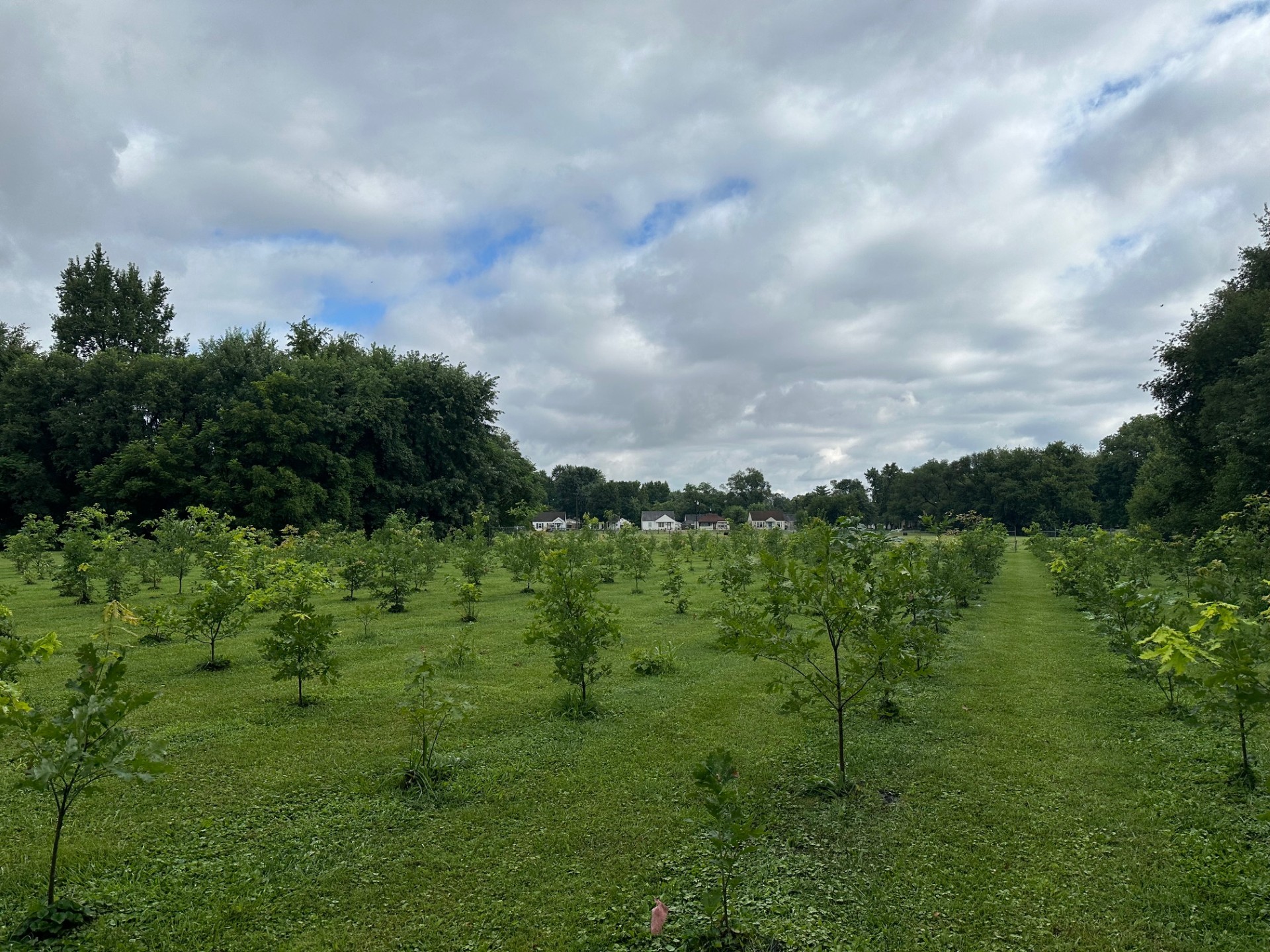
The Kentucky regional progeny test is located at the Blue Grass Army Depot in Richmond, KY and contains offspring from 72 mother trees. Results from this test will tell us about which mother trees are best to collect acorns from to produce superior seedlings for Kentucky. Seedlings from acorns collected from mother trees in AL, FL, GA, MS will help us gain knowledge about how well seedlings from the southern mother trees perform when they are moved north.
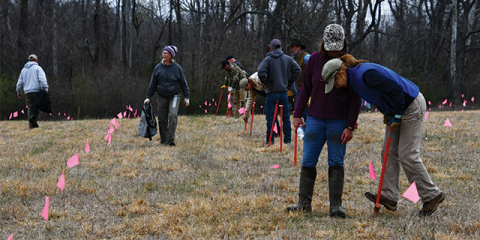
Maker's Mark
In addition to the progeny tests, there is a research site at Maker’s Mark Distillery’s Star Hill Farm that includes offspring from acorn collections from the entire range of white oak. This is the red star in the progeny location map. This site has offspring from over 800 mother trees that are also in the different regional progeny tests. The offspring in this test will not be harvested but allowed to become mature, old trees so that mature traits can be evaluated.
This is the only extensive range-wide test of white oak in existence and allows us to quantify patterns and the full range of genetic variation in traits of value to stakeholders. It also will help us gain knowledge about adaptive variation critical to changing climates and set limits to movement of mother trees to different areas.
This research site is also the primary place where the genomics work can move from the laboratory to the field allowing us to identify genetic sequences on the DNA that code for specific traits to support future breeding programs.
